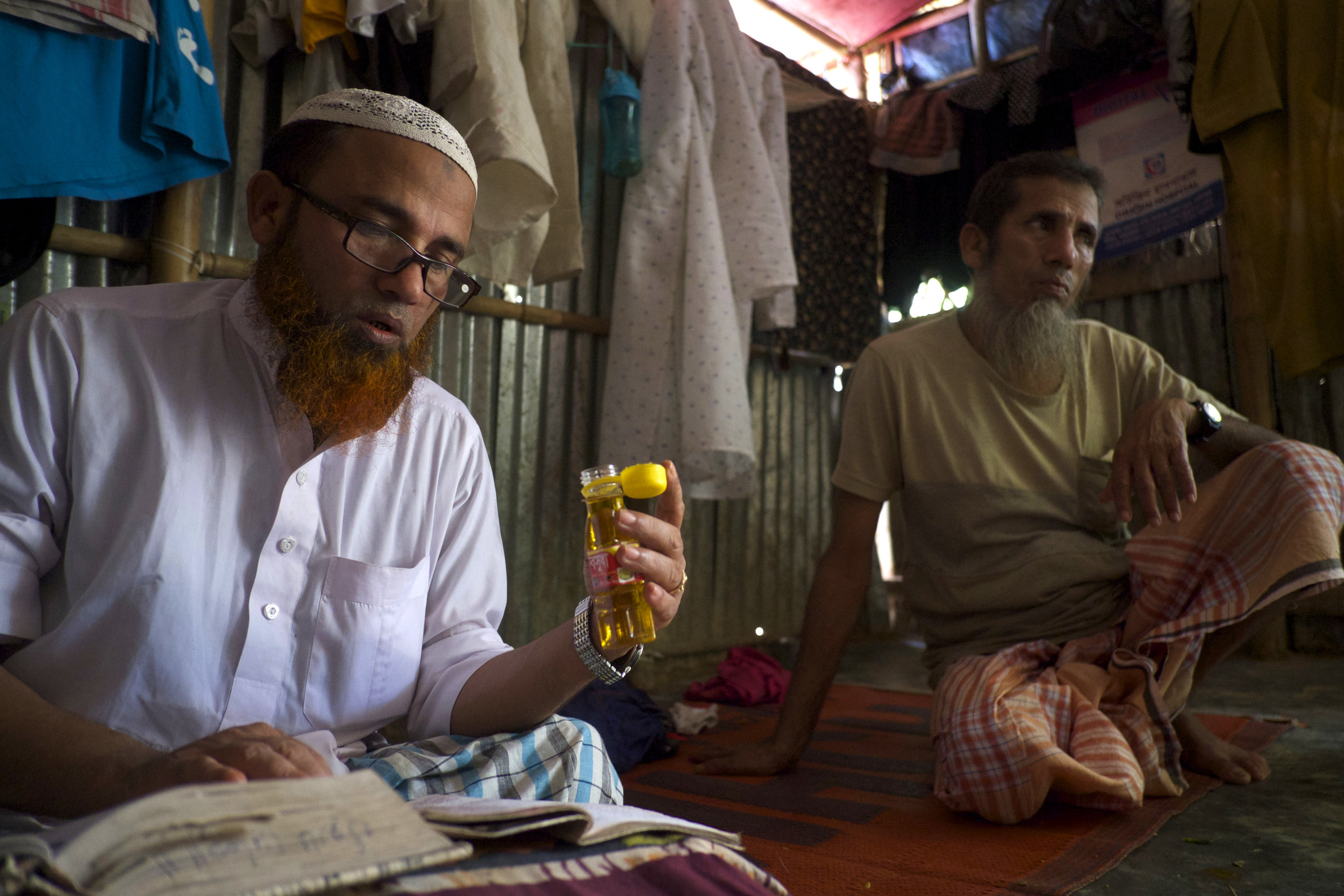IRIN: In Rohingya Camps, Traditional Healers Fill a Gap in Helping Refugees Overcome Trauma
July 30, 2018
By Dene-Hern Chen
With contributions from Abu Rehan
Gias Uddin, a religious teacher, recites verses from the Quran for Abdul Amin, right, who says that he has been in pain since he fled Myanmar in 2017. (Creid
When doctors and Western medicine couldn’t help him, Abdul Amin turned to a last resort in his own community: a religious healer in Bangladesh’s sprawling Rohingya refugee camps.
Abdul is one of more than 700,000 Rohingya who fled a military crackdown in Myanmar’s northern Rakhine State last August. Since arriving in Bangladesh, he says he has been unable to shake a persistent pain that runs through the left side of his body, despite twice seeing doctors at an NGO-run hospital in the refugee camps.
For Abdul, the pain is a constant reminder of memories he desperately wants to forget: the sound of gunfire in his village and the frightful exodus from his homeland.
“I don’t sleep that much. I think a lot about all those things that happened,” the 60-year-old refugee said, starting to cry as a religious healer sitting beside him muttered verses from the Quran into a bottle of massage oil.
“I’ve lost so much,” Abdul said.
Refugees say Myanmar soldiers burned down homes, raped women, and slaughtered civilians during last year’s violence – part of a military campaign that senior UN rights officials are calling ethnic cleansing. Médecins Sans Frontières estimates at least 6,700 were killed.
With 900,000 Rohingya now living in Bangladesh’s refugee camps, aid groups say there are crucial gaps in recognising and treating trauma. The UN’s refugee agency, UNHCR, estimates that only half of Rohingya refugees who need trauma counselling or other mental health services have access to it.
That’s why some refugees like Abdul are turning back to traditional methods of addressing trauma and mental health concerns: religious teachers and spirit healers who are themselves refugees.
